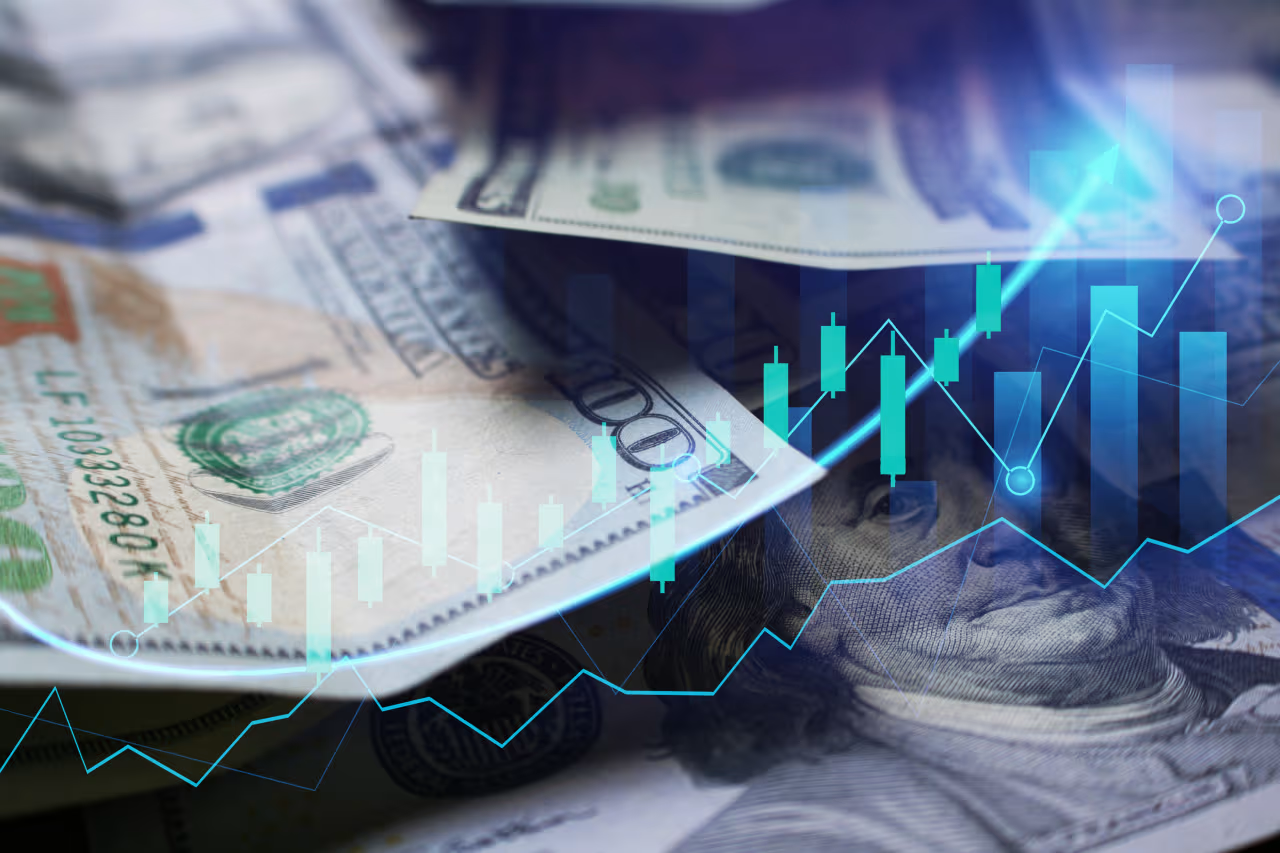The Pros Are Now Paying Attention To Day Traders
Last year, an army of day traders turned markets upside down. This year, professional fund managers are keeping tabs.
Last year, amateur investors took financial markets by storm. This year, Wall Street professionals are watching them closely.
Fund managers who might have once derided small-time day traders as “dumb money” are scouring social-media posts for clues about where the herd might veer next. Some 85% of hedge funds and 42% of asset managers are now tracking retail-trading message boards, according to a survey by Bloomberg Intelligence.
JPMorgan Chase & Co. in September introduced a new data product that includes information on which securities individual investors are likely buying and selling, as well as which sectors and stocks are being talked about on social media. About 50 clients, including some of the largest asset and quant managers, are testing the product, the bank says. JPMorgan equity traders are also using it to help manage their own risk.
“The flow from retail is not something you can ignore if you are a professional investor,” says Chris Berthe, JPMorgan’s global co-head of cash equities trading. “It’s a whole new investor class that has emerged, and it’s an investor class that’s actually getting themes right.”
Rookies rush in
The shift illustrates just how much the rookies have changed the investing landscape. A year ago, market observers were questioning if the retail revolution would continue. Now many are asking what it will look like this year.
After shying away from active investing for much of the past decade, millions of Americans, hunkered down at home because of Covid-19, became day traders in 2020. Enticed by volatile markets and phone apps that made it free to trade stocks, they flocked to social media for investing ideas. That year, they piled into stocks like Hertz Global Holdings Inc. (and ultimately were rewarded when the car-rental company exited bankruptcy). It is estimated that more than 10 million individual investors opened new brokerage accounts in 2020, according to Devin Ryan, director of financial-technology research at JMP Securities.
Last year the trends from 2020 accelerated. JMP Securities estimates that a further 15 million Americans signed up for brokerage accounts in 2021. Social-media forums became increasingly used for trading. Some individual investors used their growing numbers to send stocks including GameStop Corp. and AMC Entertainment Holdings Inc. flying. Many newbies relished in inflicting steep losses on some hedge funds and demonstrating that traditional playbooks aren’t the only way to win.
Investments that made little sense on paper became valuable in 2021 because day traders declared them so. Joke cryptocurrencies such as dogecoin—up more than 1,900% in the past year based on late Friday levels—minted self-proclaimed millionaires. A market for nonfungible tokens (NFTs), or digital images of items such as bored-ape avatars, exploded.
JPMorgan estimates that individual investors accounted for more than a third of daily trading activity several times over the past 18 months, reaching nearly 40% of shares traded on peak days.
To be sure, many of the newbies lost money. Some took on debt without understanding what they were doing, leaving them vulnerable to steep losses when stock prices fell. Riskier investing strategies, including options trading, exploded. Many amateur investors bought into buzzy shares near the top of rallies, only to watch the prices rapidly plummet.
Individual traders in 2021 purchased a net $292 billion of U.S. stocks and exchange-traded funds, according to Vanda Research’s VandaTrack platform, which tracks and sells data on the purchases of U.S. equities by individual investors. That is more than seven times the amount in 2019. Individual investors so far appear poised to continue similar levels of buying activity in 2022.
Analysts expect a bumpier road ahead for U.S. stocks this year, and some money managers believe that any prolonged volatility could wash individual investors out of the market. Many say that today’s activity resembles the late 1990s, when individual investors piled into trading only to flee when the dot-com bubble burst.
So far, individual investors have shown a strong stomach for bumpy days. Last year, the group’s eight largest buying days by dollar volume occurred when the S&P 500 sank 1.3% or more, VandaTrack data show. Several academic papers have found that individual investors have at times helped stabilize markets, providing liquidity in times of volatility.
The big names notice
By some accounts, the newbie investors have already altered some professional investors’ trading strategies. One way in particular: the way some make bearish bets.
Meme stocks like GameStop had high levels of short interest before they caught the attention of Reddit traders. That means that other investors—usually professionals, like hedge funds—were betting those stocks would fall. When shorting a stock, an investor borrows shares of a company and sells them, hoping to buy them back later at a lower price.
When the amateurs sent GameStop and other stocks soaring, the short sellers were sometimes forced to buy back shares, often at much higher prices.
These days, investors are avoiding taking big chances with their short-selling plays, according to an analysis by Ihor Dusaniwsky. He is head of predictive analytics at S3 Partners, a technology and data analytics firm that closely tracks activity by short sellers.
Just seven stocks in the U.S. market had short interest of 40% or more at the end of 2021, according to his analysis of stocks where at least $10 million of shares had been sold short. That was down from 40 stocks at the beginning of January 2020 and 19 stocks in January 2021. And unlike the previous periods, no stocks in his analysis had short interest of 70% or more at the end of 2021.
Last year, S3 started offering new tools that tell clients which stocks have crowded levels of short interest and which could leave them vulnerable to sudden losses if individual investors pile in.
“In the back of every hedge fund’s mind is, ‘I don’t want to be on the wrong side of a meme-stock play,’ ” Mr. Dusaniwsky says. “It’s a full-time job to make sure you don’t get hit by a bus.”
Reprinted by permission of The Wall Street Journal, Copyright 2021 Dow Jones & Company. Inc. All Rights Reserved Worldwide. Original date of publication: Jan 16, 2022.
 Copyright 2020, Dow Jones & Company, Inc. All Rights Reserved Worldwide. LEARN MORE
Copyright 2020, Dow Jones & Company, Inc. All Rights Reserved Worldwide. LEARN MORE
This stylish family home combines a classic palette and finishes with a flexible floorplan
Just 55 minutes from Sydney, make this your creative getaway located in the majestic Hawkesbury region.
Continued stagflation and cost of living pressures are causing couples to think twice about starting a family, new data has revealed, with long term impacts expected
Australia is in the midst of a ‘baby recession’ with preliminary estimates showing the number of births in 2023 fell by more than four percent to the lowest level since 2006, according to KPMG. The consultancy firm says this reflects the impact of cost-of-living pressures on the feasibility of younger Australians starting a family.
KPMG estimates that 289,100 babies were born in 2023. This compares to 300,684 babies in 2022 and 309,996 in 2021, according to the Australian Bureau of Statistics (ABS). KPMG urban economist Terry Rawnsley said weak economic growth often leads to a reduced number of births. In 2023, ABS data shows gross domestic product (GDP) fell to 1.5 percent. Despite the population growing by 2.5 percent in 2023, GDP on a per capita basis went into negative territory, down one percent over the 12 months.
“Birth rates provide insight into long-term population growth as well as the current confidence of Australian families,” said Mr Rawnsley. “We haven’t seen such a sharp drop in births in Australia since the period of economic stagflation in the 1970s, which coincided with the initial widespread adoption of the contraceptive pill.”
Mr Rawnsley said many Australian couples delayed starting a family while the pandemic played out in 2020. The number of births fell from 305,832 in 2019 to 294,369 in 2020. Then in 2021, strong employment and vast amounts of stimulus money, along with high household savings due to lockdowns, gave couples better financial means to have a baby. This led to a rebound in births.
However, the re-opening of the global economy in 2022 led to soaring inflation. By the start of 2023, the Australian consumer price index (CPI) had risen to its highest level since 1990 at 7.8 percent per annum. By that stage, the Reserve Bank had already commenced an aggressive rate-hiking strategy to fight inflation and had raised the cash rate every month between May and December 2022.
Five more rate hikes during 2023 put further pressure on couples with mortgages and put the brakes on family formation. “This combination of the pandemic and rapid economic changes explains the spike and subsequent sharp decline in birth rates we have observed over the past four years,” Mr Rawnsley said.
The impact of high costs of living on couples’ decision to have a baby is highlighted in births data for the capital cities. KPMG estimates there were 60,860 births in Sydney in 2023, down 8.6 percent from 2019. There were 56,270 births in Melbourne, down 7.3 percent. In Perth, there were 25,020 births, down 6 percent, while in Brisbane there were 30,250 births, down 4.3 percent. Canberra was the only capital city where there was no fall in the number of births in 2023 compared to 2019.
“CPI growth in Canberra has been slightly subdued compared to that in other major cities, and the economic outlook has remained strong,” Mr Rawnsley said. “This means families have not been hurting as much as those in other capital cities, and in turn, we’ve seen a stabilisation of births in the ACT.”
This stylish family home combines a classic palette and finishes with a flexible floorplan
Just 55 minutes from Sydney, make this your creative getaway located in the majestic Hawkesbury region.






















